Projects of The Schwarzenegger Climate Initiative
Supporting climate action projects worldwide is one of the objectives of the Schwarzenegger Climate Initiative. Find out more about the projects and the organisations below.

Supporting children and young people
The Felix Neureuther Stiftung (Felix Neureuther Foundation) was established in 2020 with the aim of making an active contribution, taking responsibility and contributing to a healthier and more sustainable world. The focus is on supporting children and young people. The “Beweg dich schlau! mit Felix Neureuther” (“Move smart! with Felix Neureuther”) exercise program lays the foundation for a healthy lifestyle from an early age. The foundation is also committed to promoting the values of health, nature, family, humanity and sustainability. The Schwarzenegger Climate Initiative is happy to support these important activities.
More information here: www.felix-neureuther-stiftung.de

Breathe
Air pollution is responsible for an estimated seven million deaths each year. It is a health emergency that artist Dryden Goodwin and the art-science organization Invisible Dust address through their project, Breathe. Among those featured is leading campaigner Rosamund Adoo-Kissi-Debrah, CBE, who has tirelessly advocated for clean air since the 2013 death of her 9-year-old daughter Ella, due to asthma caused by air pollution. The Schwarzenegger Climate Initiative is delighted to have showcased this project at the AUSTRIAN WORLD SUMMIT 2025.
More information here: www.invisibledust.com
Renewable Energy in East Africa
Many energy and solar projects face sustainability challenges for complex and diverse reasons, highlighting the fact that there is no one-size-fits-all approach to implementing solutions in the renewable energy sector. To address these challenges, the Solar Pledge East Africa programme is strategically designed as a long-term initiative to enable dioceses – which play a significant role in providing basic services in Uganda and Kenya such as running schools and health facilities – to understand and establish renewable energy systems. The Schwarzenegger Climate Initiative is happy to be a partner of HORIZONT3000 in this important project.
Project country: Uganda and Kenya
More information here: www.horizont3000.at www.solarpledge.net
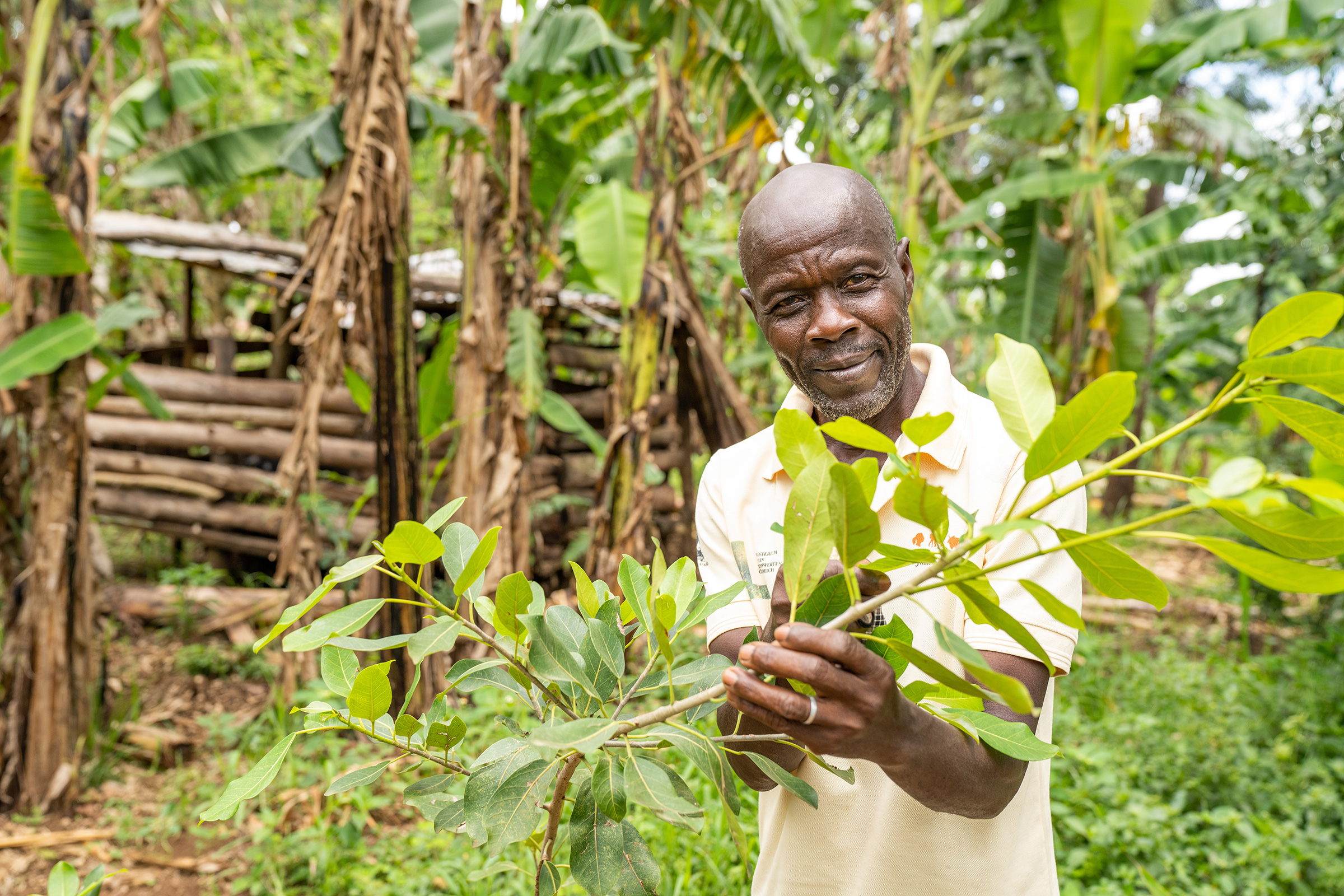
Reforestion in Uganda
Together with the Jane Goodall Institute – Austria the Schwarzenegger Climate Initiative supports the reforestation of Mutuba trees in Uganda. The fact that this project is not only about planting trees, but that the focus is equally on people, animals and the environment, makes it so extraordinary and sustainable. Only with a holistic approach we can effectively counter the devastating effects of deforestation in Africa and tackle problems such as climate change, species extinction, polluted groundwater and the loss of economic livelihoods.
Project country: Uganda
More information here: www.janegoodall.at
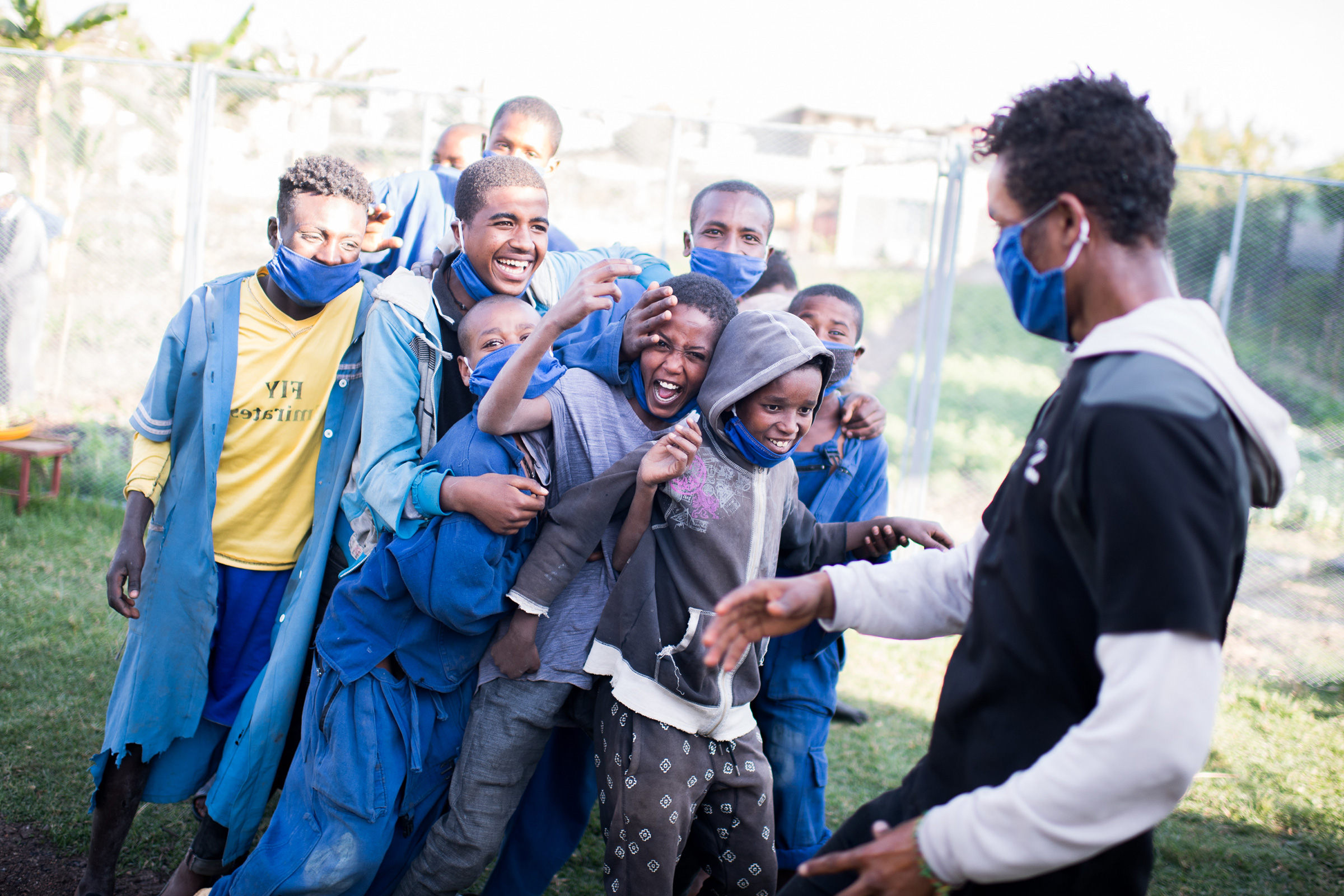
Creating a green oasis
Jugend Eine Welt’s partner „Bosco Children“ runs a center in Addis Abeba and gives street children shelter and guidance. Thanks to the donation by The Schwarzenegger Climate Initiative the “Bosco Children” facility was enabled to support street children and youth by not only providing shelter but also by creating a green oasis where the beneficiaries learned new skills integrating social, economical and ecological principles.
Project country: Ethiopia
More information here: www.jugendeinewelt.at
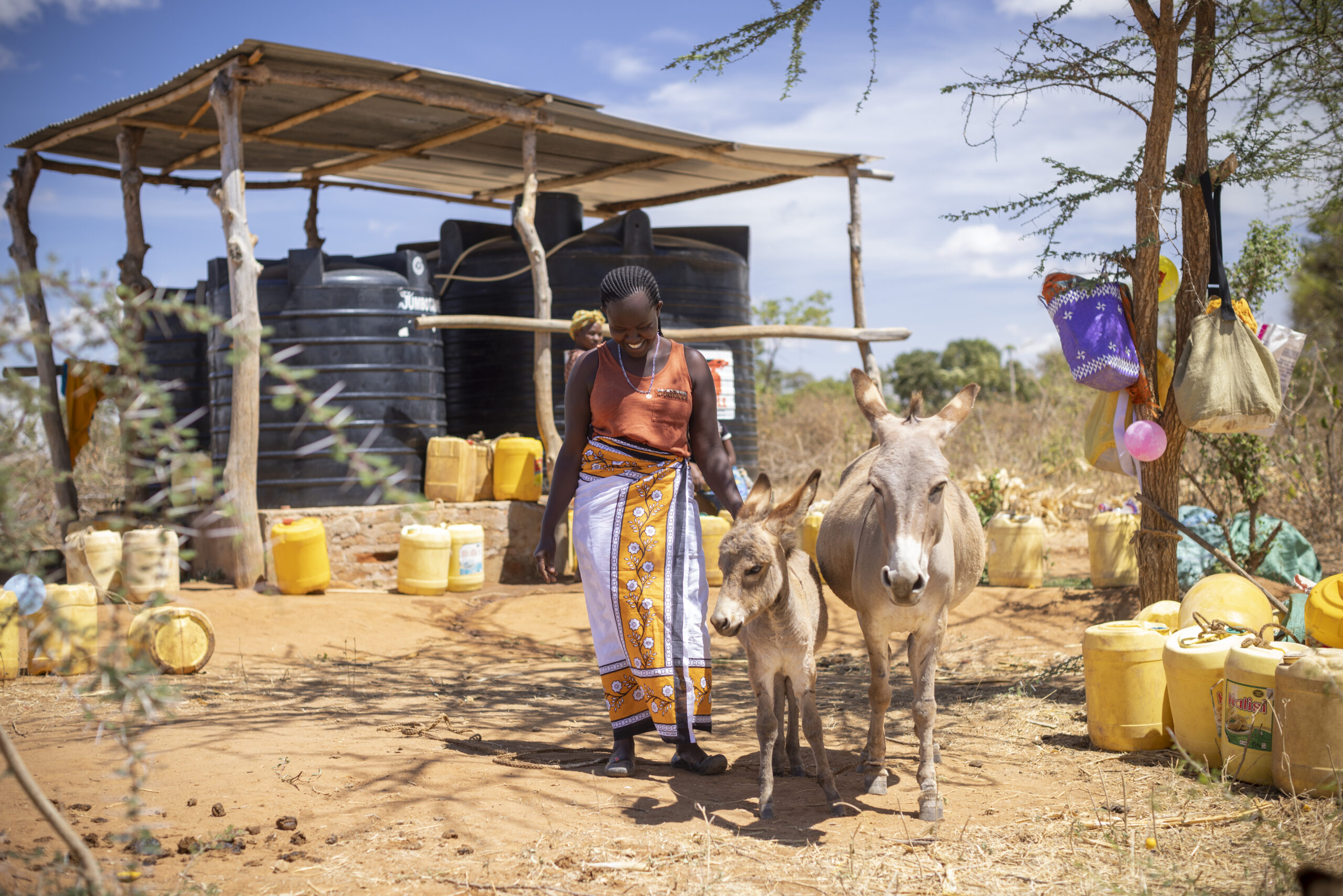
Donkeys help in the climate crisis
In some of the poorest regions of the world, 100 million working horses, donkeys, and mules support the lives of 600 million people. They are crucial to livelihoods, provide support in agriculture, enable food transportation, and education, and build a better future for families. They strengthen resilience to disasters and climate shocks. The animals transport water and food over long distances, especially during droughts, help with resettlement, and contribute to the reconstruction of infrastructure. Amid the climate crisis, they are essential and indispensable.That is why the Schwarzenegger Climate Initiative supports the valuable work of the international charity, Brooke. Brooke recognizes the value of healthy livestock for people’s livelihoods and works closely with the local population to sustainably improve the welfare of these animals. In doing so, it also helps local people to lift themselves out of poverty.
Project country: Global
More information here: www.thebrooke.org
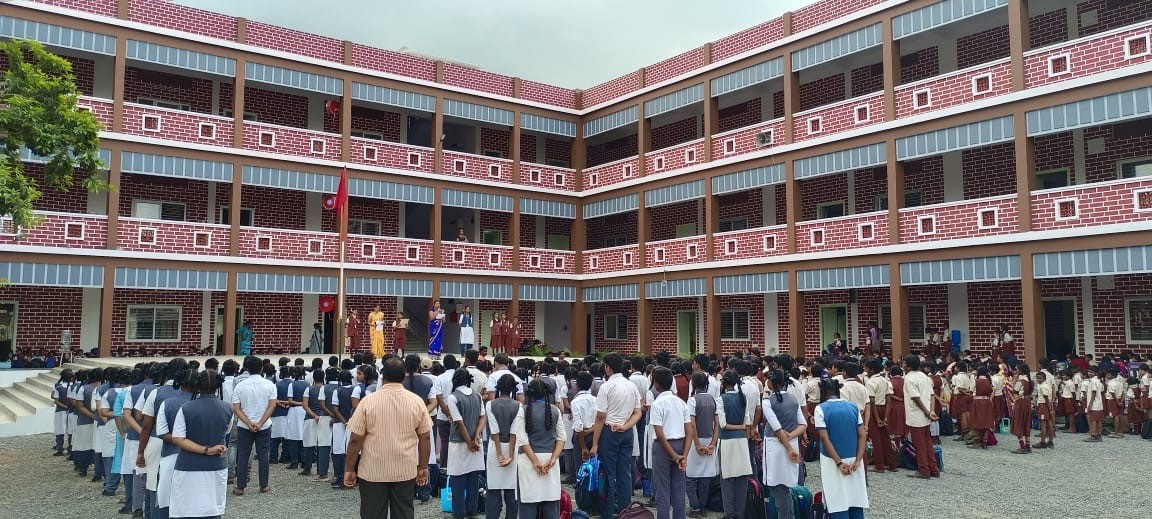
Photovoltaic system for school building
Many young people in India are unable to attend school. The Salesians of Don Bosco (SDB), a partner of Jugend Eine Welt, run several teaching facilities in the province of Hyderabad. Here, children on the margins of society receive an education and thus a glimpse of a better future. The Schwarzenegger Climate Initiative is financing a photovoltaic system on the roof of a new school building: this will not only enable the SDB to significantly reduce the building’s operating costs, but also make an important contribution to the fight against climate change.
Project country: India
More information here: www.jugendeinewelt.at

Supporting climate action in India
The people of Tamil Nadu in the south of India are feeling the harsh effects of climate change. Increased droughts and floods and the rise in agricultural pests are having a serious impact on the food supply. The drying up of watercourses threaten the population’s access to water.
The Schwarzenegger Climate Initiative therefore supports a project with a very holistic and broad approach: This ‘Jugend eine Welt’ project contributes to sustainable climate and environmental protection in 17 districts of Tamil Nadu. In the process, disadvantaged groups are actively involved and strengthened.
Project country: India
More information here: www.jugendeinewelt.at
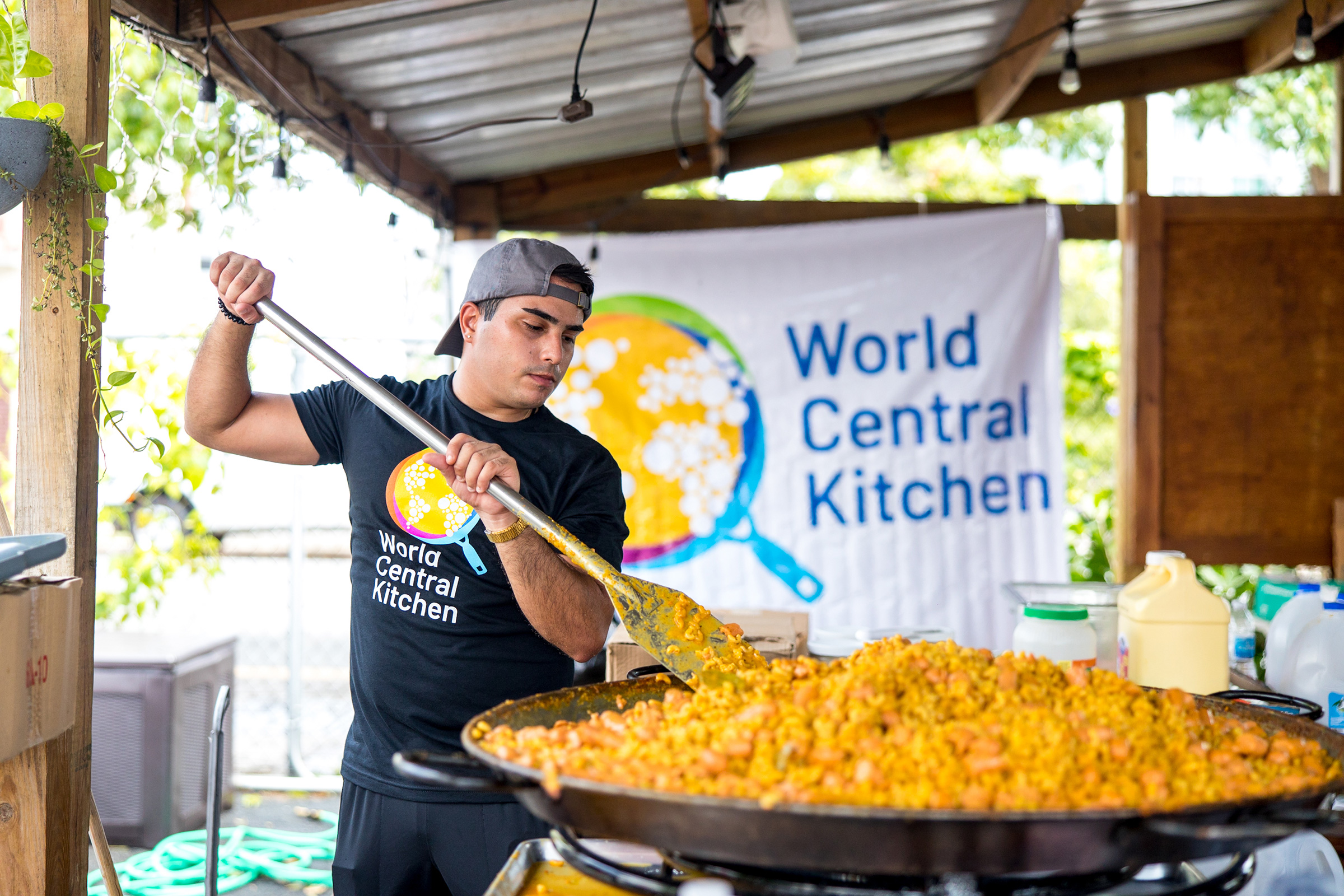
Food for hope
With the money from the BAWAG Women’s Prize 2022, which Director Monika Langthaler was awarded, the Schwarzenegger Climate Initiative supported the organisation World Central Kitchen.
Extreme weather events occur more frequently due to the climate crisis. When a natural disaster hits a community, a nourishing meal is much more than a plate of food. It gives people hope and shows that someone cares. The SCI is therefore supporting “World Central Kitchen” in their effort to assist communities impacted by extreme weather events caused by the climate crisis.
Project country: Global
More information here: www.wck.org
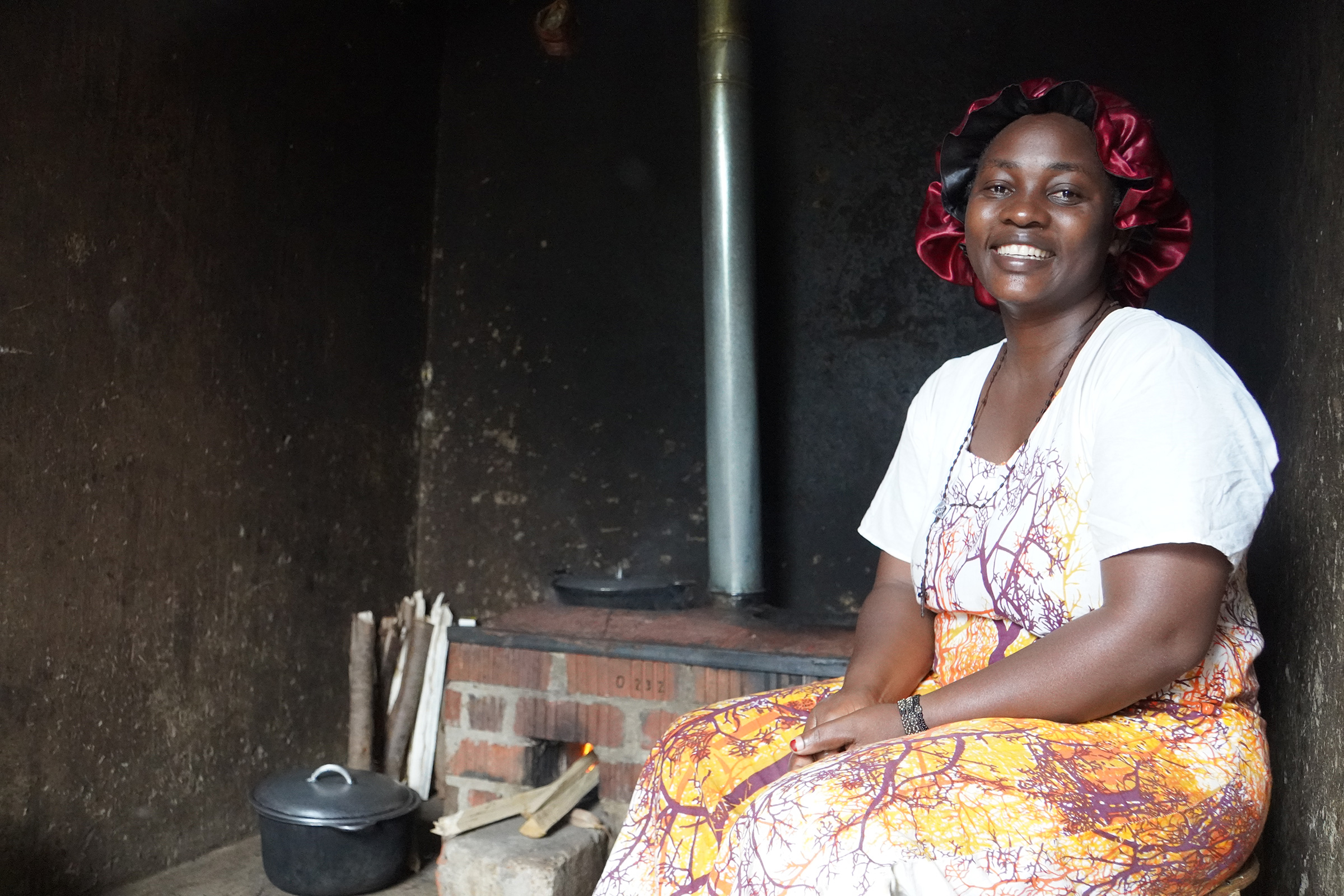
Efficient and healthy cooking
About 3 billion people in the world have no access to modern energy sources for cooking and heating their homes. This is also the case in Uganda. A large proportion of households in rural areas cook with firewood on traditional open cooking stoves. Sadly this is inefficient, drives deforestation and is also detrimental to the health of mostly women doing the cooking. We are therefore supporting the project “Efficient and Healthy Cooking” by the Caritas Masaka Diocesan Development Organization and HORIZONT3000. One new stove saves about 5t CO2 and 63% firewood per year.
Project country: Uganda
More information here: www.horizont3000.at
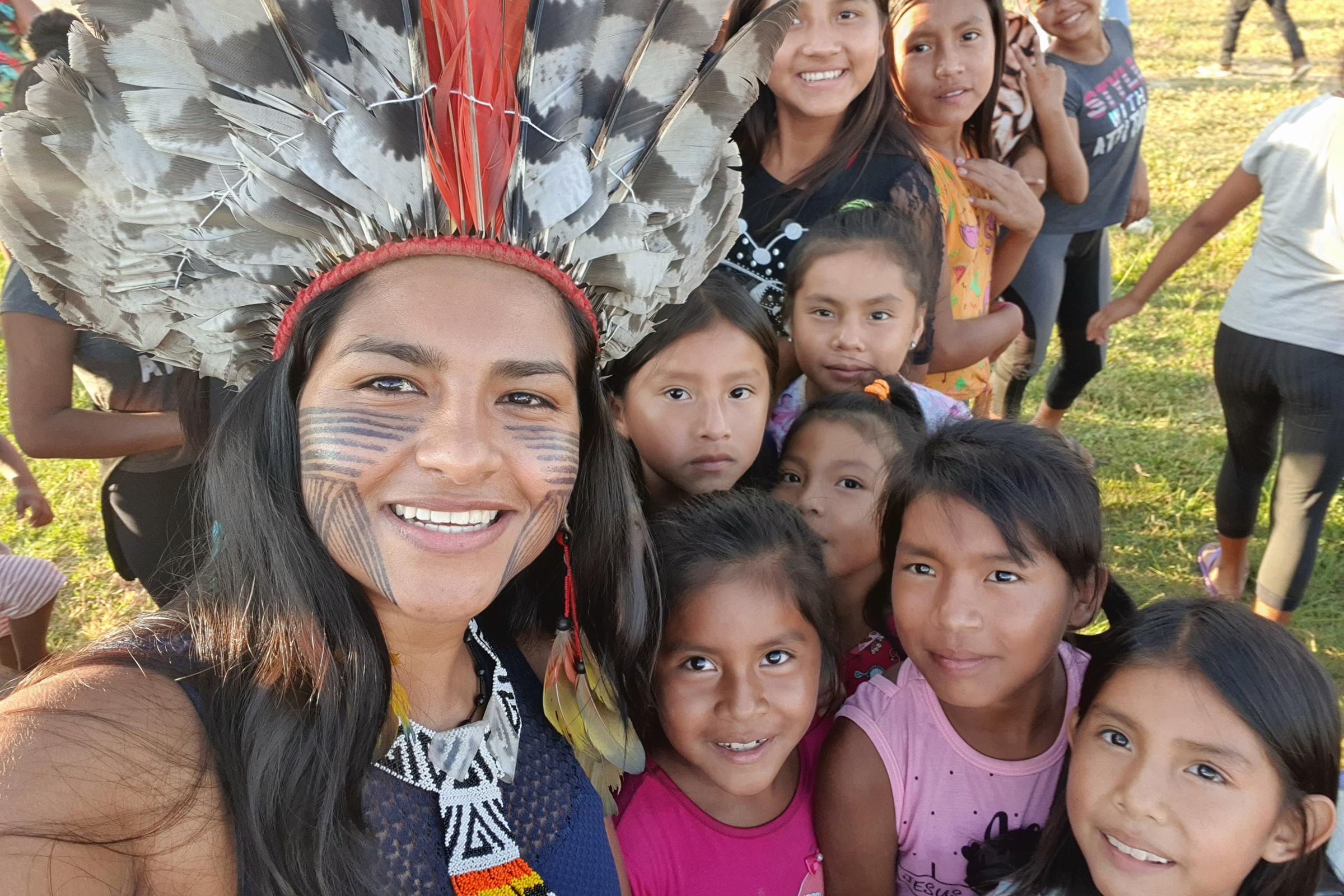
Protection of the Amazon region in Brazil
The Schwarzenegger Climate Initiative supported the Instituto Juma, which focuses on the protection of the forest, heritage, intellectual property and territories of indigenous peoples and traditional communities in the Brazilian Amazon.
Instituto Juma works against the deforestation of the Amazon rainforest and towards empowerment of the local population, especially through legal advice.
Project country: Brazil
More information here: www.institutojuma.org